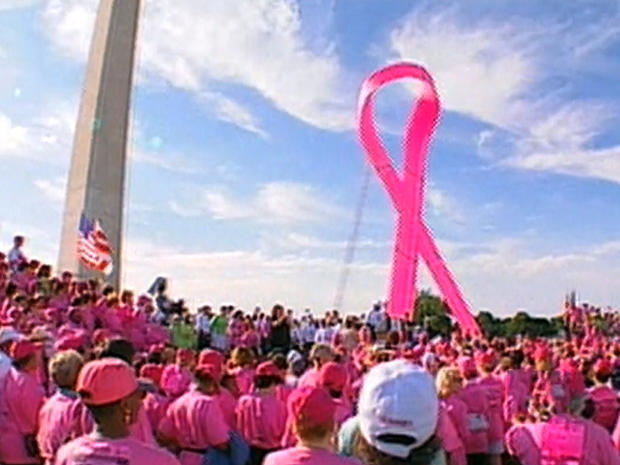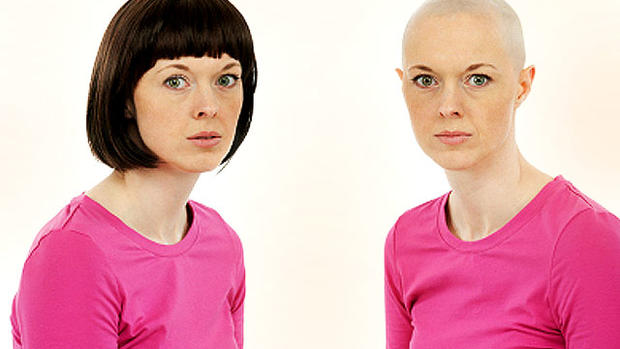Study: Breast cancer not one disease, but 10 distinct diseases
(CBS News) "Breast cancer" may be an inaccurate blanket term for ten separate diseases, according to a new study in Nature.
Researchers looked at breast cancers in 2,000 women from the U.K. and Canada and realized that the cancers, while under one unifying kind of disease, have distinct subtypes. Because hospitals often cast a wide net of tests and don't break down the kind of breast cancer further from their broad categorizations, treatments might not be as specialized as they could be, the researchers said.
"Based on our results we've reclassified breast cancer into 10 types - making breast cancer an umbrella term for an even greater number of diseases," study co-leader Carlos Caldas, senior group leader at Cancer Research UK's Cambridge Research Institute and the Department of Oncology at the University of Cambridge, said in the press release. "Essentially we've moved from knowing what a breast tumor looks like under a microscope to pinpointing its molecular anatomy - and eventually we'll know which drugs it will respond to."
Breast cancer is normally classified by "markers" on tumors and treatment varies depending on this information. For example, those diseases with estrogen receptors should respond to hormone therapies such as tamoxifen; those with a so-called "Her2 recepto" can be treated with Herceptin, BBC News reported.
Seventy percent of breast cancers respond to hormone therapies, but reactions can vary. That's why, Caldas told BBC, being able to break down specifically what kind of disease is affecting the patient could be crucial, calling it a "completely new way of looking at breast cancer."
"This will change the way we look at breast cancer, it will have an enormous impact in the years to come in diagnosing and treating breast cancer," Dr. Harpal Kumar, chief executive for the non-profit Cancer Research UK, said to BBC. The organization partially funded the study. "We think this is a landmark study"
The information is supposed to impact how breast cancer is treated in future generations.
"This research won't affect women diagnosed with breast cancer today," Caldas told Reuters. "But in the future, .. patients will receive treatment targeted to the genetic fingerprint of their tumor."
Breast cancer will affect 229,060 Americans and cause about 39,920 deaths in 2012, according to the National Cancer Institute.

